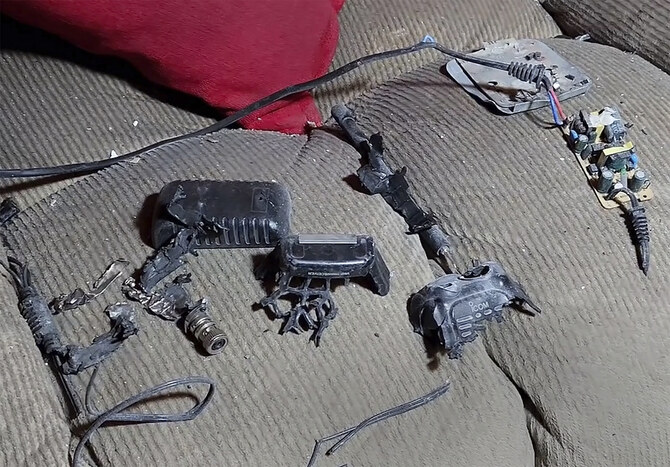Israel has shown that thought does not match technology

When the late Egyptian President Gamal Abdel Nasser was asked why he was defeated in the 1967 war, he said it was because of Israel’s spiritual superiority. That is why it fought against us (Egypt, Syria and Jordan) at the same time.”
A reporter replied: “But Egypt also has a large fleet of fighter jets?” At that time, Egypt had 420 fighter jets, including the advanced MiG-21.
Nasser replied: “They have more pilots than Egypt, three Israeli pilots for every fighter plane, which means they can fly one plane several times a day .”
His justification was correct, but Israel’s superiority was not based on the acquisition of advanced aircraft; it was due to developing the entire Israeli military base and its support network based on highly sophisticated programs.
More than 4,000 people have been killed or injured in recent days in two high-tech operations carried out by Israel against Hezbollah, using pagers and walkie talkies. We are in an age of technological wars, not wars of courage, and the concept of conflict is “development,” not history.
Telephones, along with other communication devices, computers, televisions, electric cars and airplanes, are all potential weapons. A car like a Tesla, with eight cameras, can be hacked by someone who can watch everyone inside and outside the car and even hack it from a remote country, change it work.
Using wireless phones and pagers as killing tools widens the gap and makes it impossible to overcome conflicts through military means. Nasser complained about Israel’s supremacy half a century ago, and today the gap has doubled, making the idea of military reform difficult, if not unwise.
Throughout history, technology has played an important role in warfare and one empire has prevailed over another. The Mongols developed multi-pointed bows that allowed their horsemen to shoot arrows accurately and continuously while on horseback, enabling them to win half of the world at an extraordinary rate.
The Arabs crossed continents after developing chemical weapons made of hot tar.
Likewise, the Ottomans excelled in inventing large cannons that allowed them to demolish formidable fortresses such as Constantinople.
Scientific superiority is the key to human victories.
Abdulrahman Al-Rashed
Britain, a small remote island, conquered the world by using the technology of ship-borne cannons that could destroy fortresses from the sea, building armed ships, and expanding trains that speeded the transportation of goods and soldiers.
We cannot forget the nuclear bomb, the pinnacle of human ingenuity in destruction, which ended the Second World War for the benefit of the US and its allies – its effects are still present today.
Scientific superiority is the key to human victory, and the development of war machines is a direct result of the development of society and society.
What makes Israel superior is the focus on intelligence in the field of technology, which has given victory to this day in peace and war, and distinguish it economically despite the size of its markets.
Israel is making progress in the fields of cybersecurity, military manufacturing, artificial intelligence, autonomous vehicles, medical technology, and irrigation and agricultural technology.
As for Hezbollah, like Iran, its willingness to sacrifice its fighters, as well as recruiting cheap fighters from Lebanon, Iraq, Afghanistan and Yemen, and switching weapons made in Russia and China, they named them “Martyr,” “The Winner,” “Al-Qassam,” and “Al-Zalzalah.”
Like Al-Qaeda, the party relies on courage and emotional readiness for sacrifice. However, this strategy is not useful in modern warfare, as one analyst noted of the panic and high casualties within the Hezbollah group due to pager explosions. held by Israeli science: “You can’t fight technology with ideas.”
All the dead on both sides, Hezbollah and Israel, believe they go to heaven, but the most important thing in wars is who wins.
These battles will continue without a decisive outcome because one side is actively working to improve its capabilities, and uses its battle with its opponents as a testing ground, while the other side is which is rooted in metaphysical beliefs and does not value human losses. life.
- Abdulrahman Al-Rashed is a Saudi journalist and intellectual. He is the former director of Al-Arabiya news channel and former editor-in-chief of Asharq Al-Awsat, where this article was originally published.
Disclaimer: The views expressed by the authors in this section are their own and do not necessarily reflect the views of Arab News.
#Israel #shown #thought #match #technology


